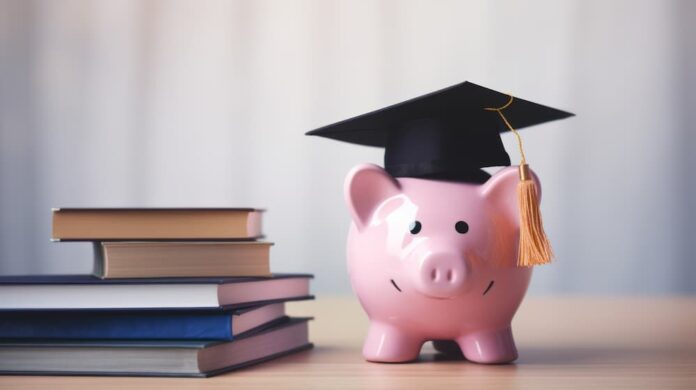Student loan debt management can be challenging, but with some smart tips you may be able to pay your loans off faster. One approach is the debt snowball method, in which loans with lower interest rates should be prioritized first for repayment. Aside from that, any extra money from raises, bonuses, tax refunds, or side hustles should go toward loan payments instead.
1. Get Organized
Many graduates leave college with numerous loans, and keeping track of them can be daunting. You’ll need to know each loan’s details, such as lender information, balances, interest rates, and repayment terms, to stay organized.
Organization can save you both money and headaches down the line. Should you ever decide to change your loan repayment plan, consolidate debt, or apply for student loan forgiveness, having all relevant data in one place can make the process smoother. Start by compiling a list of your outstanding loans. Include details about each lender as well as payments due, contact information for each one, and payment amounts.
2. Make a Budget
Assuming student loan payments will fit within your overall financial picture requires creating a budget that takes into account income, debt balances, loan types, and interest rates.
Consider setting up automatic payment deductions from your bank account so you don’t miss a payment, and redirect any extra funds you have from cutting back expenses, making extra income through side gigs, or receiving windfalls such as inheritances or tax refunds to student loan payments. Divide up your income equally between necessities (rent/utilities/transportation and insurance premiums), wants, and indulgences—the 50/30 rule should work perfectly well here!
3. Make Extra Payments
Student loan debt affects millions of college students each year, yet making smart payments could significantly reduce the total amount owed and help you work toward paying it down faster. Many companies even offer programs to help repay student loans as an employee benefit to attract and retain talent.
Make sure that when making extra payments, they are applied directly to the principal balance. Otherwise, your loan servicer could apply your payments towards next month’s installment instead of helping to reduce your principal balance. If possible, switch from monthly payments to biweekly ones; this will result in 13 half payments each year that help reduce the principal balance and save on interest charges.
4. Get a Student Loan Consolidation
Student loan consolidation is the process of consolidating multiple student and parent loans into one larger loan with one lender, providing borrowers with greater debt management by changing the interest rate, shortening payback periods, or qualifying them for alternative repayment plans such as graduated or income-sensitive plans.
Pros include lower monthly payment amounts, decreased credit utilization (which can affect your credit score), and eliminating confusion from dealing with multiple servicers. Cons include lengthening the length of your loan term, potentially paying more overall interest payments, and losing borrower benefits such as rebates or discounts.
5. Use Credit Cards Wisely
There’s no single solution for managing debt, but with smart strategies in place, borrowers can begin chipping away at student loan balances and working toward long-term financial freedom.
First, determine your total debt burden, such as federal and private student loans, credit card debt, and any forms of financing like auto or mortgage debt. Next, organize your finances and set a budget. Unless you know exactly where to begin, consulting a credit counselor could be of enormous benefit. They can help you evaluate your income and expenses to create an individual budget plan tailored specifically for you.
6. Make Short-Term Sacrifices
If the challenge of paying back your student loans presents an undue financial strain, there are steps you can take to effectively manage them and decrease interest payments faster. These strategies may even save money!
Start by gathering all your loan data. Use the National Student Loan Data System or your credit report to track all federal and private loans you currently hold—their balances, interest rates, and repayment options—from both federal and private sources. Consider making extra loan payments of $10–$20 each month using any unexpected money sources, such as tax refunds or unexpected gifts, to go toward paying down your loans faster.
7. Stay on Top of Payments
Once you’re out of school and living independently, maintaining your loan payments is absolutely vital. Even if your loans are deferred or forborne, interest continues to accrue, so making even small monthly payments will make a difference in how your account develops over time.
Please take a moment to review your loans and their terms. Utilize the National Student Loan Data System to monitor all your lenders and balances simultaneously, and then contemplate various repayment options like income-driven plans or deferment. Consider allocating any “found money,” such as gifts or tax refunds, toward accelerating debt repayment. Even small amounts like these could make a significant impactful difference!
8. Take Advantage of Tax Deductions
Use tax deductions to reduce your student loan payments and interest expenses. Be sure to claim the tax deduction for student loan interest each year and recertify your income when necessary for an income-driven repayment plan.
Save your tax refund or any “found money” for debt and make extra payments each month to reduce the total amount owed. Also check with your employer to see if any benefits for repaying student loans exist—many medical professionals, public service employees, and members of the armed forces qualify for loan forgiveness programs that could reduce what you owe significantly.
9. Don’t Default
Although student loan repayment may appear complicated, professional assistance could be available to help alleviate its burden. They can assist with understanding your loan terms, reviewing forgiveness/repayment plan options available to you, and even negotiating with lenders directly on your behalf.
Missed payments can have serious repercussions for your credit score and savings account, including late fees and increased interest charges. Furthermore, defaulting on federal student loans could cause the government to garnish wages and withhold tax refunds; clearing them up can be both time-consuming and expensive; however, it’s worth investing the effort and expense to avoid these negative consequences.




